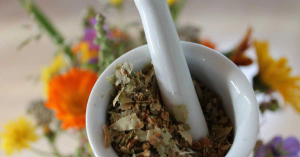How Stress Affects Preeclampsia Risk?
Pregnancy can be both exciting and overwhelming. While some stress is natural, chronic stress can contribute to high blood pressure and inflammation—two key factors in the development of preeclampsia. Research suggests that excessive stress may impair blood flow to the placenta, increasing the risk of complications. By managing stress effectively, you can create a healthier environment for both you and your baby.
Signs of Stress in Pregnancy
If you’re pregnant, it’s important to recognize stress early. Common signs include:
• Frequent headaches or muscle tension
• Difficulty sleeping or feeling constantly fatigued
• Increased heart rate or shortness of breath
• Feeling overwhelmed, irritable, or anxious
• Digestive issues like nausea or stomach pain
If these symptoms persist, consider stress-management techniques to improve your overall well-being.
Practical Ways to Reduce Stress and Lower Preeclampsia Risk
1. Practice Deep Breathing and Meditation
Controlled breathing exercises can help lower blood pressure and promote relaxation. Try deep belly breathing:
• Inhale deeply through your nose for 4 seconds
• Hold your breath for 4 seconds
• Exhale slowly through your mouth for 6 seconds
Practicing this for just 5–10 minutes a day can help calm your nervous system.
2. Prioritize Restful Sleep
Poor sleep quality can contribute to stress and high blood pressure. Improve sleep by:
• Following a consistent bedtime routine
• Sleeping on your left side to improve circulation
• Using relaxation techniques before bed, such as reading or listening to calming music
3. Stay Physically Active
Gentle exercises like prenatal yoga, walking, and swimming help release endorphins, which naturally reduce stress. Aim for 30 minutes of light exercise most days of the week, unless advised otherwise by your doctor.
4. Maintain a Balanced Diet
A healthy diet supports both physical and emotional well-being. Focus on:
• Magnesium-rich foods like nuts, seeds, and leafy greens to help relax muscles
• Omega-3 fatty acids (found in walnuts and flaxseeds) to support brain function and reduce inflammation
• Staying hydrated to prevent headaches and fatigue
5. Build a Strong Support System
Emotional support plays a crucial role in stress management. Stay connected with family, friends, or a prenatal support group. Sharing your concerns can ease emotional burdens and provide reassurance.
6. Set Realistic Expectations and Take Breaks
Don’t try to do everything at once. Break tasks into smaller steps, delegate responsibilities, and allow yourself time to rest.
7. Seek Professional Support When Needed
If stress feels overwhelming, talk to a doctor or therapist. Cognitive-behavioral therapy (CBT) and prenatal counseling can provide valuable tools for stress reduction.
Conclusion
Managing stress is a vital step in reducing the risk of preeclampsia. By incorporating relaxation techniques, maintaining a healthy lifestyle, and seeking support, you can create a positive and stress-free pregnancy journey. Always consult with your healthcare provider before making any changes to your routine. Your well-being matters—not just for you, but for your baby too!








